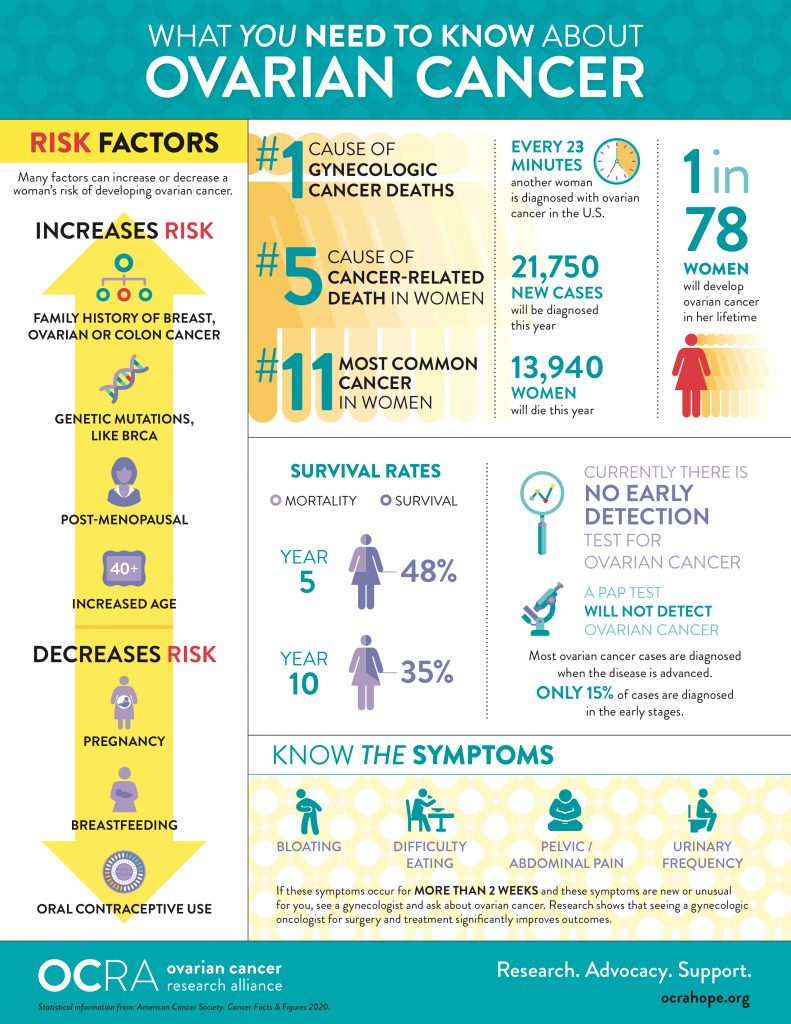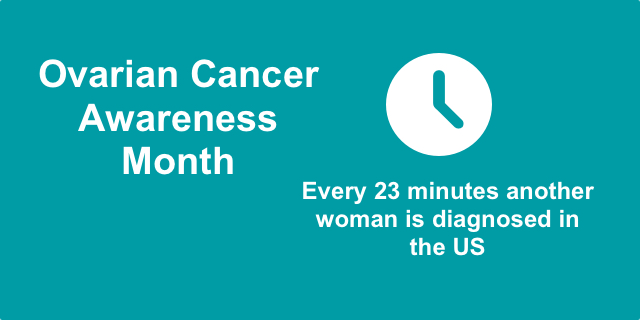When it comes to ovarian cancer, finding the right kind of doctor for your surgery impacts survival. Gynecologic oncologists are the surgeons of choice. In some studies when comparing general surgeons to gynecologic oncologist surgeons, having gynecologic oncologists improved survival rate significantly. The Foundation for Women’s Health can provide you information on finding one in your area. Additionally, obtaining care at an NCI-designated cancer center is important.
In 2015, I wrote a post which included an infographic on ovarian cancer. Many of the statistics remain unchanged. Ovarian cancer is the fifth leading cause of cancer death in women, according to the Ovarian Cancer Research Alliance (OCRA), a wonderful resource for anyone dealing with this cancer. The organization is holding its annual national conference remotely this year. Called “Uniting for Hope,” it is being held September 29 through October 2.
The agenda is packed with information starting with a keynote called “What’s New In Ovarian Cancer Treatment.” Each day, Ask the Expert sessions give patients and caregivers a chance on managing recurrences, genetic counseling, integrative medicine and clinical trials in the age of COVID-19. There are also on demand sessions discussing racial disparities, healthy cooking, yoga and the financial issues of a cancer diagnosis among many others.
In 2019, OCRA provided $7 million in funding for research in ovarian cancer. The organization is instrumental in securing government funding for ovarian cancer research.
Below is an infographic by OCRA providing information on signs and symptoms of ovarian cancer.

Knowing the risk factors and the symptoms can save your life.





